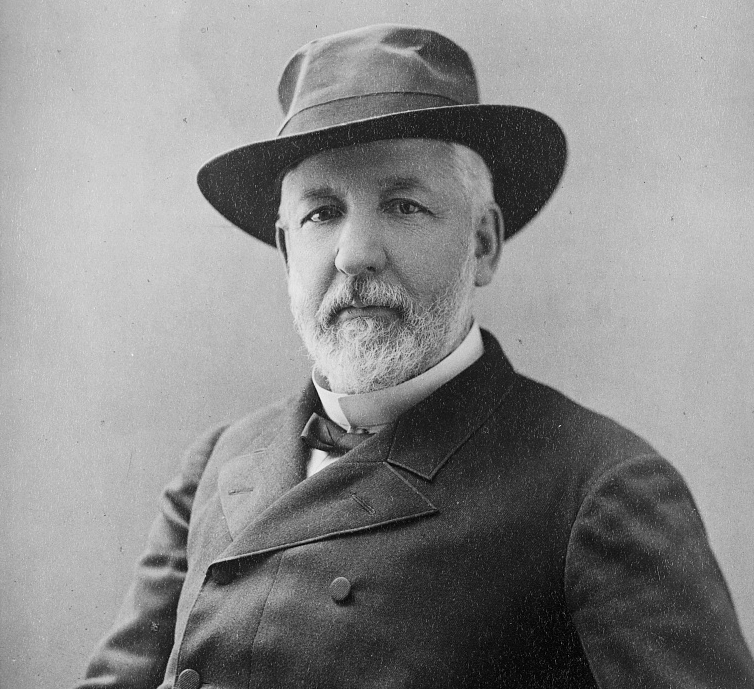The recent Netflix series “Death By Lightning” has revived interest in a significant figure of American political history: Maine’s own James Blaine. The show, alongside Candice Millard’s acclaimed book, sheds light on Blaine’s influential role during the post-Civil War era, a time marked by corruption and political strife. While Blaine’s home state remembers his legacy, his story remains largely overshadowed by more prominent figures in American history.
Blaine, who served as a U.S. senator and Secretary of State, was the Republican nominee for president in 1884. He emerged as a leader within the Republican Party, advocating for the rights of those formerly enslaved and challenging both Democratic and Republican colleagues who viewed government as a tool for personal gain. His fiery rhetoric and political acumen are highlighted in “Death By Lightning,” where he is portrayed by Bradley Whitford. The series captures Blaine’s essence as a dynamic and insightful politician whose eloquence starkly contrasts with contemporary political discourse.
Legacy of a Political Leader
Blaine’s tenure in politics was marked by significant achievements and challenges. He was one of only two men to serve as Secretary of State under three presidents, alongside Daniel Webster. Despite his substantial contributions, public memory often favors presidents over their advisors. Blaine’s conflict with fellow Republican Roscoe Conkling exemplifies his combative nature. He famously compared Conkling to “mud to marble” in a speech that remains one of the most memorable denunciations in American political history.
The show also revisits a pivotal moment in Blaine’s life when he was at the side of President James A. Garfield during the assassination attempt by Charles Guiteau in 1881. Blaine recounted the harrowing experience of seeking to aid Garfield after hearing gunshots, underscoring the personal risks that came with his political involvement. Guiteau’s delusional belief that Blaine was manipulating Garfield further illustrates the tumultuous atmosphere of the time.
Blaine’s journey to the Republican nomination in 1884 was fraught with obstacles. He initially overcame the challenge posed by President Chester Arthur, who sought re-election. Blaine’s campaign faced skepticism from various voter groups, particularly Irish Americans wary of his stance on temperance and church-state separation. Ultimately, he lost a close election, becoming the only Republican nominee between 1860 and 1912 who did not ascend to the presidency.
Impact and Modern Relevance
Despite his electoral defeat, Blaine’s legacy remains relevant. He demonstrated that a politician, equipped with wit and principles, can influence historical policy changes. His advocacy for improved relations with Latin America and the push for commercial expansion were significant during his time and continue to resonate today. As contemporary politics grapples with challenges reminiscent of Blaine’s era, his story serves as a reminder of the importance of integrity and effective leadership.
The resurgence of interest in Blaine through “Death By Lightning” invites a reevaluation of his contributions and the lessons to be drawn from his life. As the series captivates audiences, it encourages a broader discussion about the political figures who shaped American history and the values they embodied. More than just a historical figure, James Blaine emerges as a role model for future leaders navigating the complexities of governance and public service.



































































